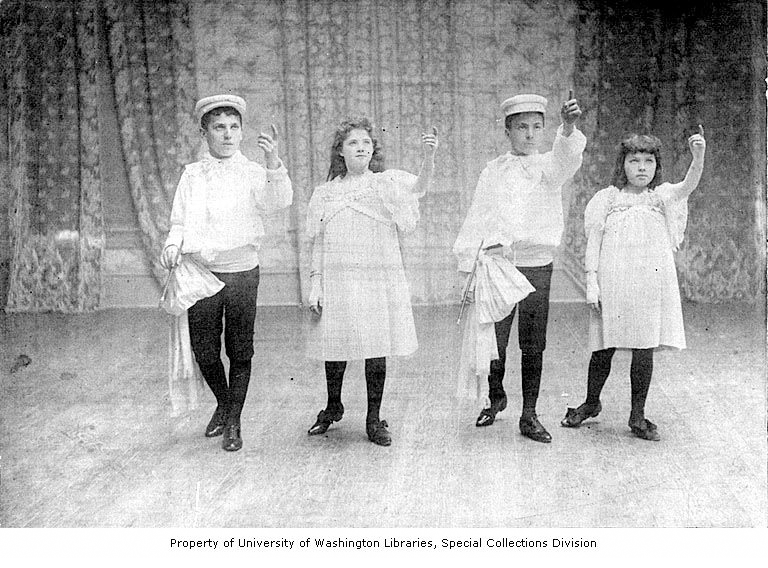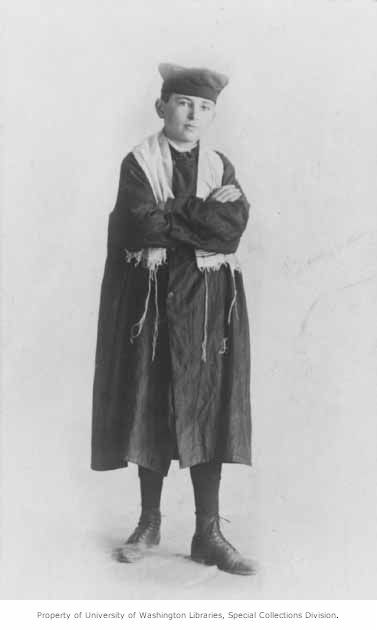Young Men
A Deplorable State of Affairs
This lament–about young men not being interested in religious community–sounds more like a statement we might associate with a Jewish communal leader in 2002 rather than 1902. Yet, we see that the president of Temple De Hirsch highlighted the problematic behavior of young men, as opposed to the excellent behavior of the ladies.
What does this speech from the yearly address of the president of Temple De Hirsch to the congregation tell us about the role of the synagogue in American Jewish life and the social pressures transforming Judaism in Seattle and around the country?
For anyone familiar with the role of men in traditional Jewish communities, the absence of men is particularly strange. After all, only men are included in the traditional prayer quorom and, unlike women, have an obligation to pray three times a day. As a result, the synagogue, and Jewish traditional life more generally, was dominated by men whose obligation to prayer and study linked them very closely to community institutions. Women, on the other hand, had a clear role in the family sphere. The fact that women did not have an obligation to positive time-bound commandments (such as prayer and other ritual practices) allowed them the flexibility to oversee the domestic space. The division created a power dynamic in Jewish communities with men empowered to control the most important communal institutions and women limited to their domestic sphere.
What happened that led men away from the pews at Temple De Hirsch? We need to think about the changing roles of gender and religion in the American context. In the United States, religion played a secondary role to other areas of power in society. While religion remained an important force, status for new immigrants in the Unite States was connected to economic, political, and social standing. Moreover, religious institutions became associated with education–a role closely associated in early twentieth century America (And still, to a large extent, today) with women. In Europe, the synagogue functioned as a place of authority and power in Jewish communities. In the United States, the synagogue was a space dedicated to education children and preaching moral ideals. By opening up Jewish religious institutions to women, the status of these institutions diminished considerably.
The language of the president of the synagogue underscores the association of the Temple with training the necessary moral values of middle class life in early twentieth century. NOte that the lament is not about the fact that the young men are not praying regulary or following Jewish rituals. The concern is that the Temple commnity has not been able to instill the expectations of middle class behavior. Perhaps there was a concern that this “deplorable state of affairs” woiuld lead non-Jews in Seattle to asssociate Jews with immoral behavior. The president implicitely views the role of the Temple, or Jewish religious community, as an engine of acculuration–helping young adults learn the appropriate behavior for upstanding American citizens.
Ironically, by holding up the women as the role model for the ideal behavior and congratulationg the women for their involvement, the President was inadverntanyly accelerating the process of alienating men. The more religious communities associated themselves as places of education and moral development, the less social authority these religious communities would have.

